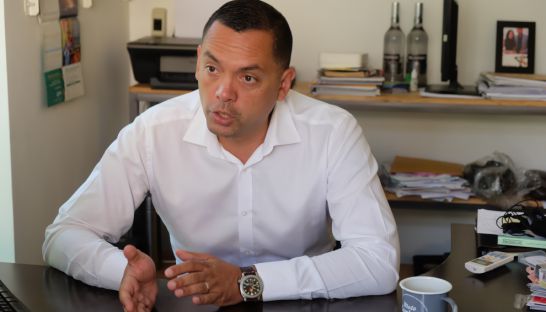Bringing startups to Cambodia
Confluences Asia, a Cambodia-based consulting and advisory firm, recently helped launch its second startup in Cambodia with Portuguese e-ticketing firm Last2Ticket. The Post’sMatthieu de Gaudemar sat down with Soreasmey Ke Bin, managing director of Confluences, to discuss the Kingdom’s appeal to foreign firms and startups.
Can you describe the current work of Confluences Asia in Cambodia?
We work a lot with foreign companies that want to integrate into the Cambodian market by providing consulting and advisory services. We help them with their first steps, which involves a lot of matchmaking efforts with potential local partners to assess the viability of coming to Cambodia.
How did you first begin to work with startups?
Because technology and startups is an area of interest for us, we began to work in the sector by hosting startups in our offices. At first we offered them office space and advisory services for free and then we would discuss their project and see if it was interesting for us to become shareholders. That is what happened with the startups we already launched, WendGo! and Last2Ticket.
Is your focus on startups more local or international?
For us, our focus so far has been on welcoming and working with foreign startups, rather than on creating startups locally from scratch. But now we are working to increase our involvement with startups by combining local and foreign companies. We are going to look for foreign startups that we think fit in the Cambodian market. We are also trying to find local startups, either created by Cambodians or foreigners, and offer to work with them through Confluences because I think that now we have developed a good knowledge base of how to successfully launch.
Why is now the right time to begin bringing in startups from outside and developing local ones?
We pitch Cambodia as a place where startups can begin their integration into ASEAN. There is a big advantage here with how easy it is to get a visa but also the fact that you can create a business structure without having to be registered for several months. There is a lot of freedom to be an entrepreneur here, which allows a startup to start much more easily than elsewhere.
What has your experience been so far with the startups you have worked with?
Last2Ticket is a good example of how we work. We know it is going to take some time for them to fully develop in Cambodia because we brought them in very early. In the local market, very few people use credit or debit cards and people almost 100 percent use Facebook for event organisation. But we saw from event organisers that they want to evolve from using Facebook for their events to be able to receive payments before events through e-ticketing services. If we came in two or three years from now, there might already be startups that are here doing that.
What about the challenges?
Many challenges go back to the fact that Cambodia is a small market and is behind in terms of technological advancements, which means when you bring in new technologies you have to be able to explain them to potential users. In terms of recruitment, it can be hard to hire qualified people. There are still a lot of qualified people, but they are in large demand so they are expensive to hire. There is also a blurry regulatory framework, which can be an advantage but also an inconvenience.
What is your outlook on the current startup ecosystem?
What we see happening in Cambodia is people imitating existing business models without innovating. They also invest most of their funds and effort in technology without backing it with any marketing so they often fail to take-off. Technological solutions must be implemented according to the demands of the market, but I think because Cambodia is a young startup market, many entrepreneurs want to create applications or technological solutions without looking first at the commercial side of things.
Source: http://www.phnompenhpost.com/business/bringing-startups-cambodia


 Thailand
Thailand




